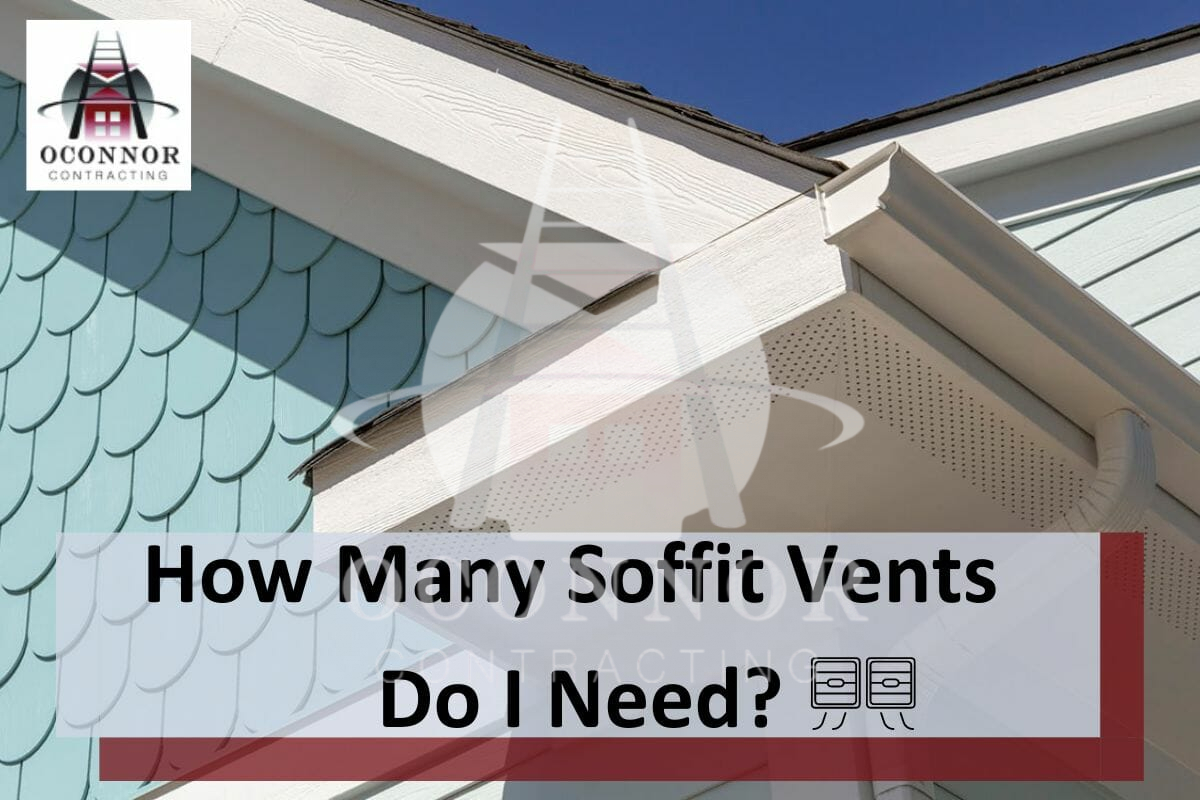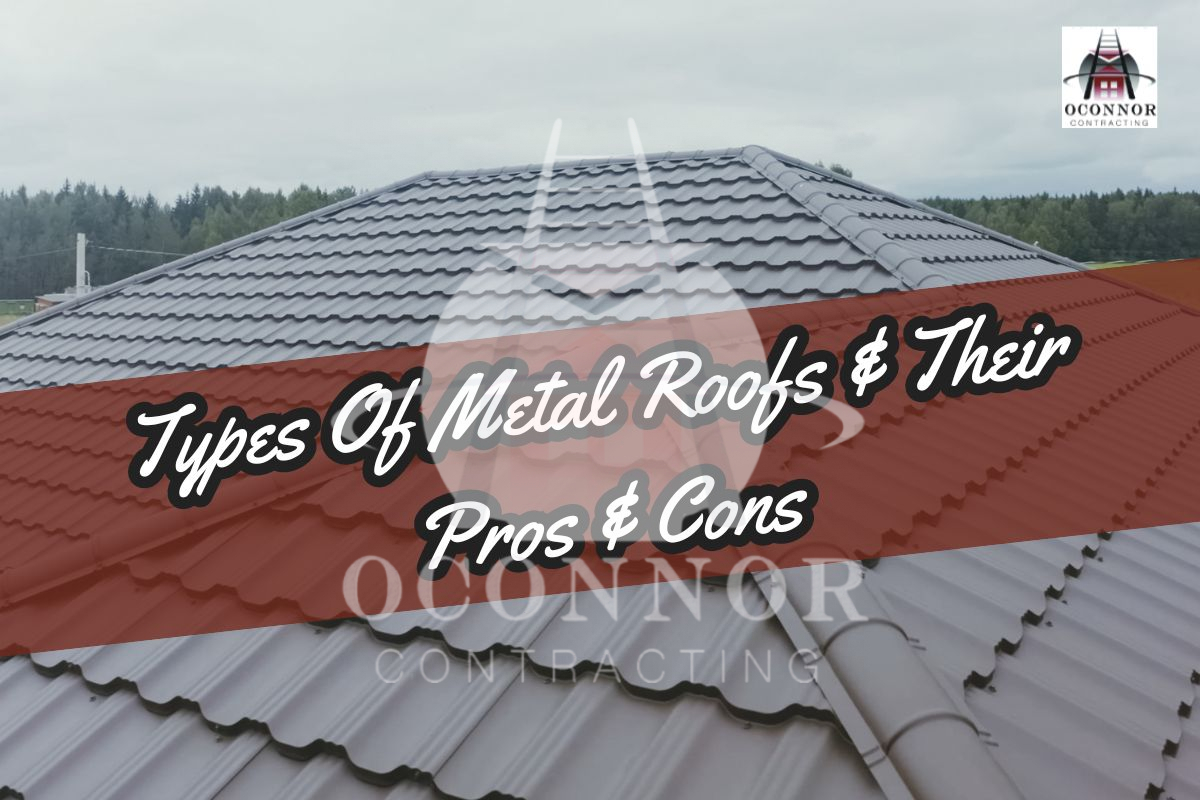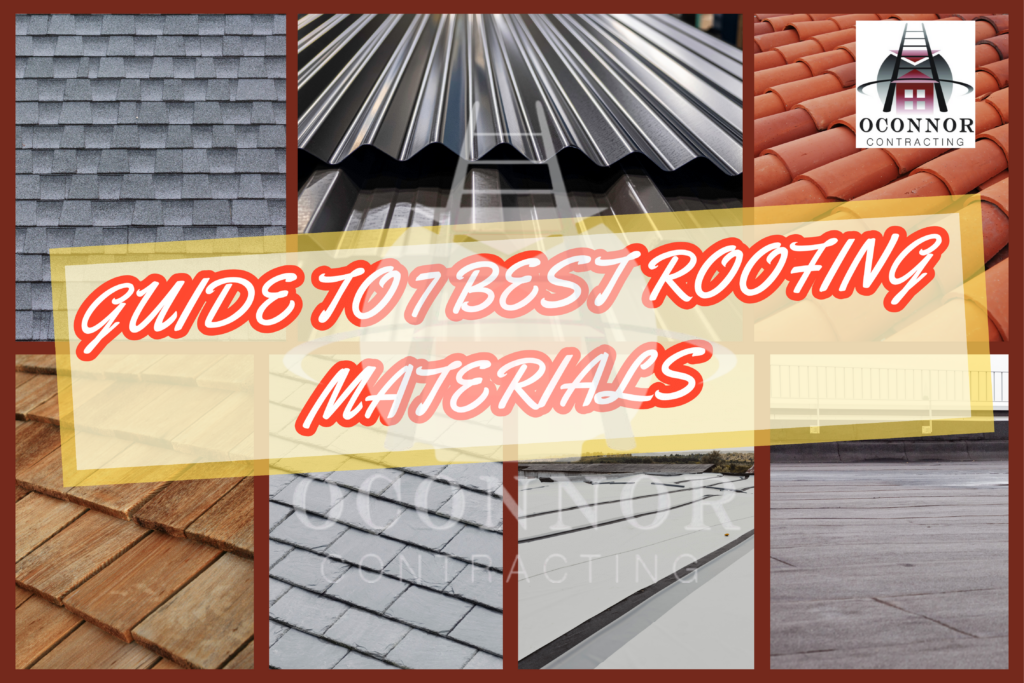
If you are a homeowner who is looking to install or replace your existing roof, you might be wondering, what is the best roofing material for my house? If you are looking for answers about what materials you can consider for your project, then you are in the right place. We’re here to make the selection process smoother.
Choosing the right roofing material for your home can be an exciting yet overwhelming task, given the multitude of options available today. From traditional choices to modern innovations, the roofing landscape has expanded significantly, offering you an array of possibilities. In this guide, we aim to simplify this process by providing you with insights into various roofing materials.
Best Roofing Materials for Homes in WNY
Any of the roofing materials on this list will provide sufficient and reliable protection against the elements.
#1 Asphalt Shingles
Let us start our list with the most common option you can choose to install on your roof. Asphalt shingles, a highly dependable roofing material, have stood the test of time. These versatile roofing shingles are very affordable and boast widespread popularity. More than 60% of the residential homes in the U.S. have an asphalt shingle roof.
With their evolution over the years, these roofing shingles offer you reasonable durability and aesthetic appeal, making them an ideal choice for many homeowners.
Pros of Asphalt Shingles:
- Asphalt shingles are one of the best roofing materials if you are on a tight budget. These are typically available in the range of $3 to $6 per square foot.
- These roofing shingles are available in various styles and color options, they can even match premium materials like slate and wood at a lesser cost.
- Most of the shingles are lightweight, making them easier to handle and install for roofing contractors.
Cons of Asphalt Shingles:
- While generally durable, extreme weather conditions can impact the longevity of asphalt shingles. However, luxury versions can come with good wind and impact resistance.
- Asphalt shingles are not the most eco-friendly option, as they are petroleum-based and often contribute to landfill waste.
Best Brands:
- GAF
- CertainTeed
- Owens Corning
Now, let us move to another staple in the roofing material industry: metal roofs.
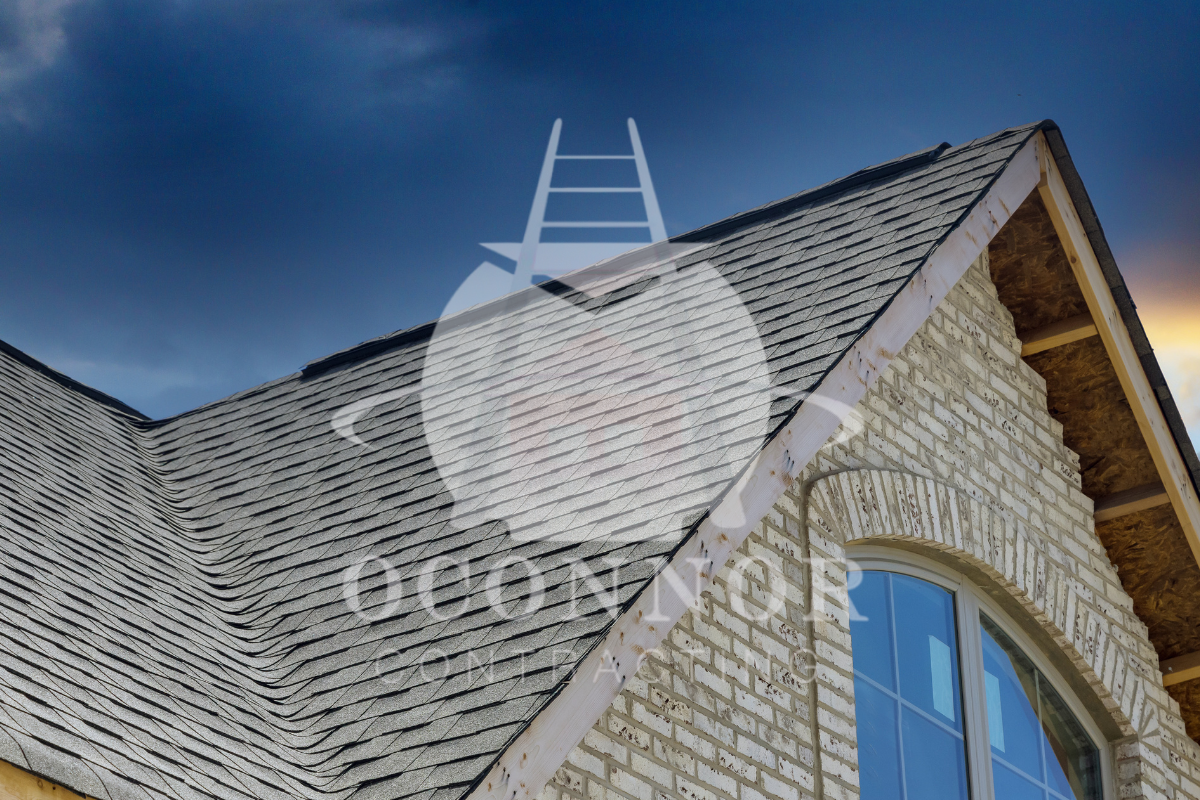
#2 Metal Roofs
If there is a roofing material that has gained immense popularity in the last few decades, it’s metal. If you install metal panels or shingles, you will get a roof that not only looks good but also withstands all the weather conditions of New York. Once associated with commercial buildings, metal roofing systems have now become increasingly popular among homeowners. This evolution has led to an array of options, providing a sleek, contemporary look coupled with impressive performance.
Pros of Metal Roofs:
- Metal roofs have a remarkably long lifespan, often exceeding 50 years with proper maintenance and installation.
- One of the primary reasons why homeowners choose to install a metal roof is because they are resistant to extreme weather conditions, including snow, hail, and high winds.
- Metal roofs are quite durable, and therefore, you will not need to spend much time on maintenance. However, annual inspections are still essential.
Cons of Metal Roofs:
- Upfront costs for metal roofs are usually higher than asphalt shingles and other roofing materials. However, consider it an impressive value for your money in the long run.
- Installing metal roofs requires specialized knowledge and skills, adding to installation costs. Make sure you hire a professional roofing contractor in New York.
Best Brands:
- Classic Metal Roofing Systems
- McElroy Metal

#3 Tile Roofs
Now, let’s talk a bit about the timeless charm and durability of tile roofs. There are different types of tile roofs: clay tiles and concrete tiles, both of which offer a distinct and attractive appearance. So, if you are a homeowner who wants a roof that can enhance the overall look of your home, tile roofs are amongst the best roofing materials.
In the architectural landscape of New York, tile roofs add a touch of Mediterranean elegance while standing up to the challenges of the Northeastern climate.
Pros of Tile Roofs:
- Aesthetics are the biggest plus of installing tile roofs. Both clay and concrete tiles can enhance curb appeal and provide a unique look.
- Roof tiles are resistant to fire, rot, and insects.
- With proper maintenance, tile roofs can last for decades. Concrete tiles have a lifespan of around 30 to 40 years, while clay tiles can last even longer.
Cons of Tile Roofs:
- Weight can be an issue as tile roofs are heavy, and some structures may require additional reinforcement to support the load.
- Due to the heavy weight and brittle nature of the tiles, installation can be difficult and take longer than other materials.
Best Brands:
- Boral Roofing
- Ludowici
- Eagle Roofing Products

#4 Slate Roofs
Next on the list is the enduring slate roof. You likely have seen this roofing material adorning structures like churches, as it has been for centuries. Slate is a natural stone that is split into thin, flat sheets to create roofing tiles. These tiles are not only incredibly durable but also carry a distinct, sophisticated look. It’s important to note that there are synthetic slate options available if natural slate is not a good choice for your home.
Pros of Slate Roofs:
- Slate roofs exude a sense of luxury. These are premium roofing materials that have the ability to last for over 100 years.
- Renowned for their longevity, genuine slate roofs can withstand the harshest weather conditions better than other roofing materials available.
- The inherent thermal properties of slate contribute to energy efficiency.
Cons of Slate Roof:
- Slate roofs tick almost every box, but there is a big downside. Genuine slate roofs are very expensive, which may deter some homeowners.
- Similar to tile roofs, slate is heavy, and structural reinforcement may be necessary.
Best Brands:
- Natural Slate: Vermont Slate Company
- Faux Slate: DaVinci Roofscapes

#5 Wood Shakes
Wood shakes, derived from natural cedar or other hardwoods, present a rustic charm that resonates with traditional and contemporary homes alike. These are handcrafted roofing materials that have a textured appearance. Wood shakes or shingles provide a warm and inviting look to your home. However, you should know that these require regular maintenance.
Pros of Wood Shingles:
- Wood shakes made of natural cedar age gracefully, developing a beautiful silver-gray patina over time.
- The natural insulating properties of wood contribute to energy efficiency.
- Sourced from renewable materials, wood shakes are an eco-friendly choice.
Cons of Wood Shingles:
- The biggest limitation of installing a wood shake roof on your home is its need for regular maintenance. This is crucial as wood shingles are vulnerable to issues such as insect infestation or rot.
- Wood shakes may have lower fire resistance compared to other materials.
Like slate roofs, there are also some synthetic wood shingles available. There are even some asphalt shingles that can mimic the look of wood shakes.
Best Brands:
- Natural Wood: SBC Cedar
- Faux Wood: CeDUR Synthetic Roofing Products
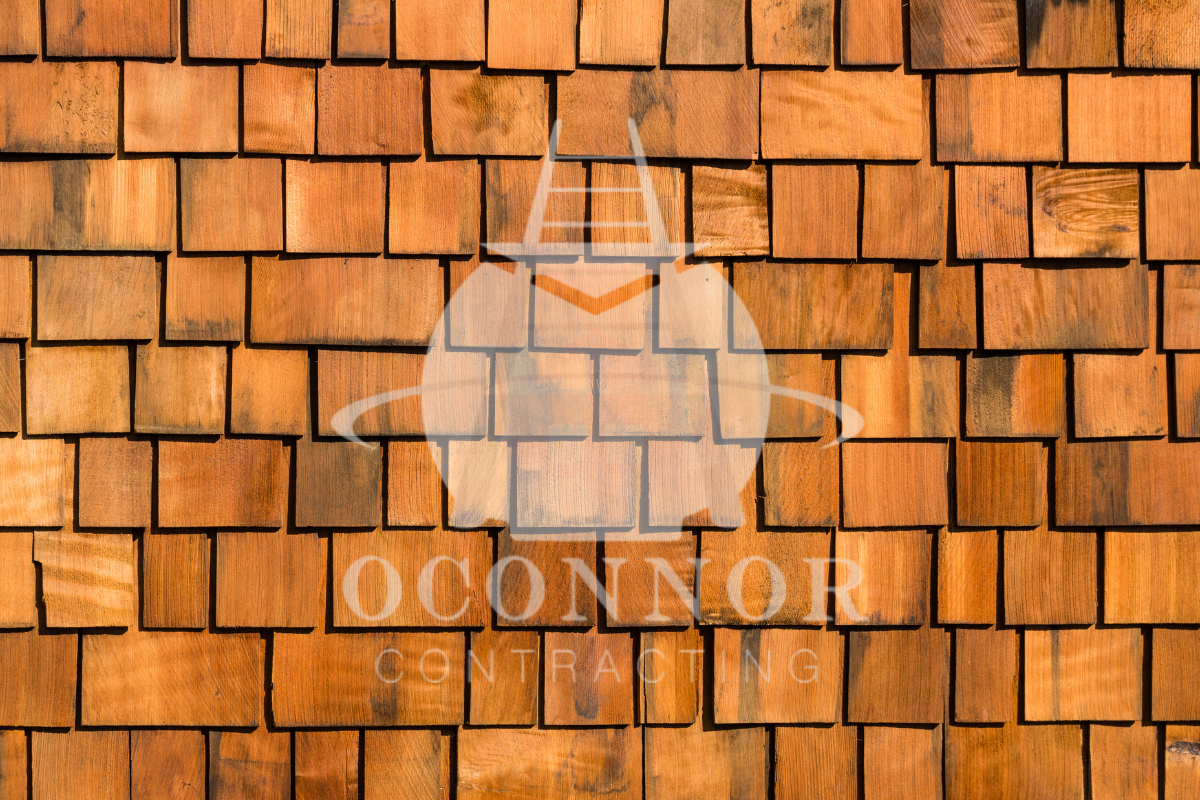
#6 EPDM Roof
Ethylene propylene diene monomer, or simply EPDM, roofs are one of the best flat roof materials available today. These have been a staple in the commercial roofing industry for years, but as more and more homeowners are opting for a home with a flat roof, they are finding their mark in residential spaces too. This synthetic rubber roofing material has gained popularity for its resilience and ability to withstand the diverse weather conditions experienced in Western New York. There are two types of EPDM roofs available based on their color, black and white EPDM.
Pros of EPDM:
- EPDM roofs exhibit exceptional resistance to weathering, UV rays, and ozone exposure.
- Compared to some traditional materials, EPDM roofs often come with a more budget-friendly price tag.
- EPDM membranes are known for their ease of installation, potentially reducing labor costs. There are also several methods that can be used to install it.
Cons of EPDM:
- EPDM roofs may lack the aesthetic appeal of other materials as these are mostly available in black.
- While generally durable, punctures can occur, though they are usually repairable.
Best Brands:
- Elevate
- Carlisle SynTec Systems
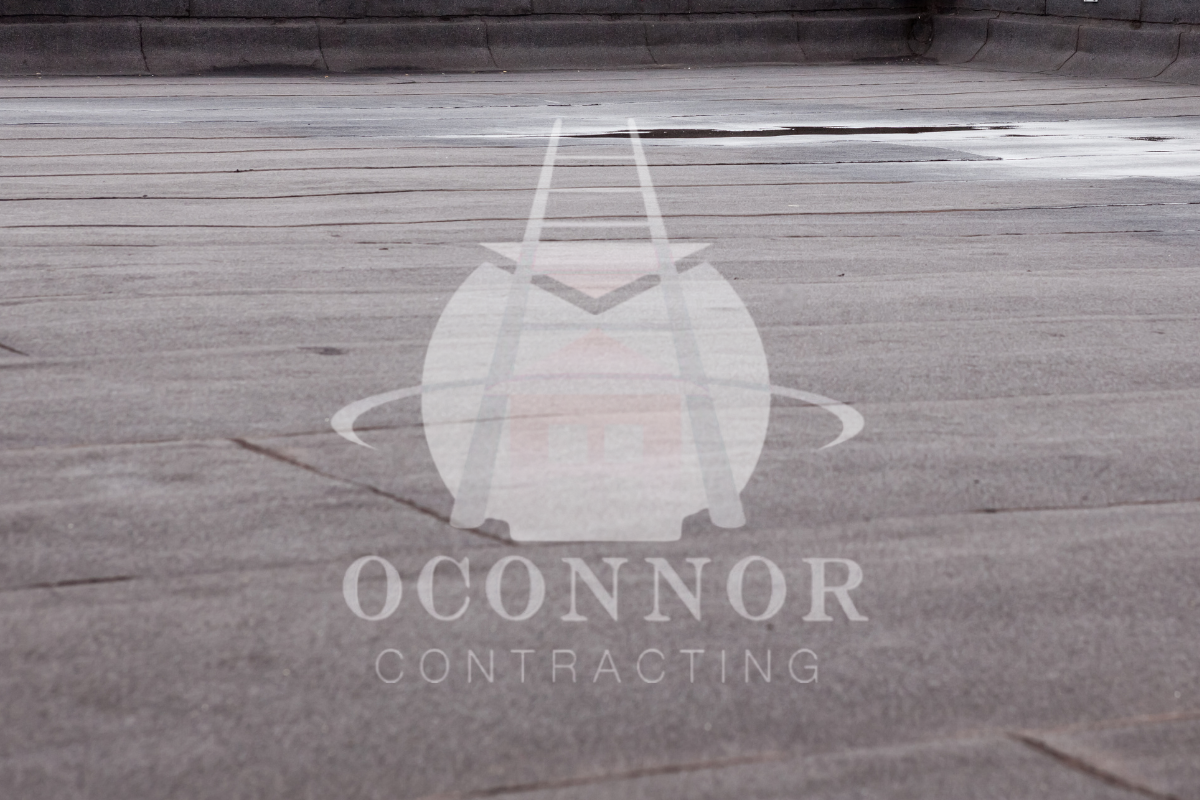
#7 TPO Roofing Membrane
Let’s take a look at another top material for flat roofs, TPO or thermoplastic polyolefin. Both EPDM and TPO cover the majority of the share when we talk about flat roofing materials. This is a synthetic, single-ply roofing membrane blend of various materials, including ethylene, propylene, and rubber.
The manufacturing process of TPO involves merging these elements to create a roofing material that can handle whatever nature throws its way. In Western New York, where weather can be unpredictable, TPO steps up as a reliable defender that can protect your flat roof.
Pros of TPO:
- TPO roofs are known for their reflective properties. Their bright white color helps to reduce heat absorption, contributing to energy savings.
- TPO is one of the best roofing materials when it comes to puncture and tear resistance.
- TPO is recyclable and can contribute to a LEED (Leadership in Energy and Environmental Design) certification for sustainable construction.
Cons of TPO:
- TPO can be more expensive when you compare them with other flat roof-specific materials.
- The long-term performance of TPO roofs may vary depending on the manufacturing quality.
Best Brands:
- GAF
- Carlisle SynTec Systems
- Elevate
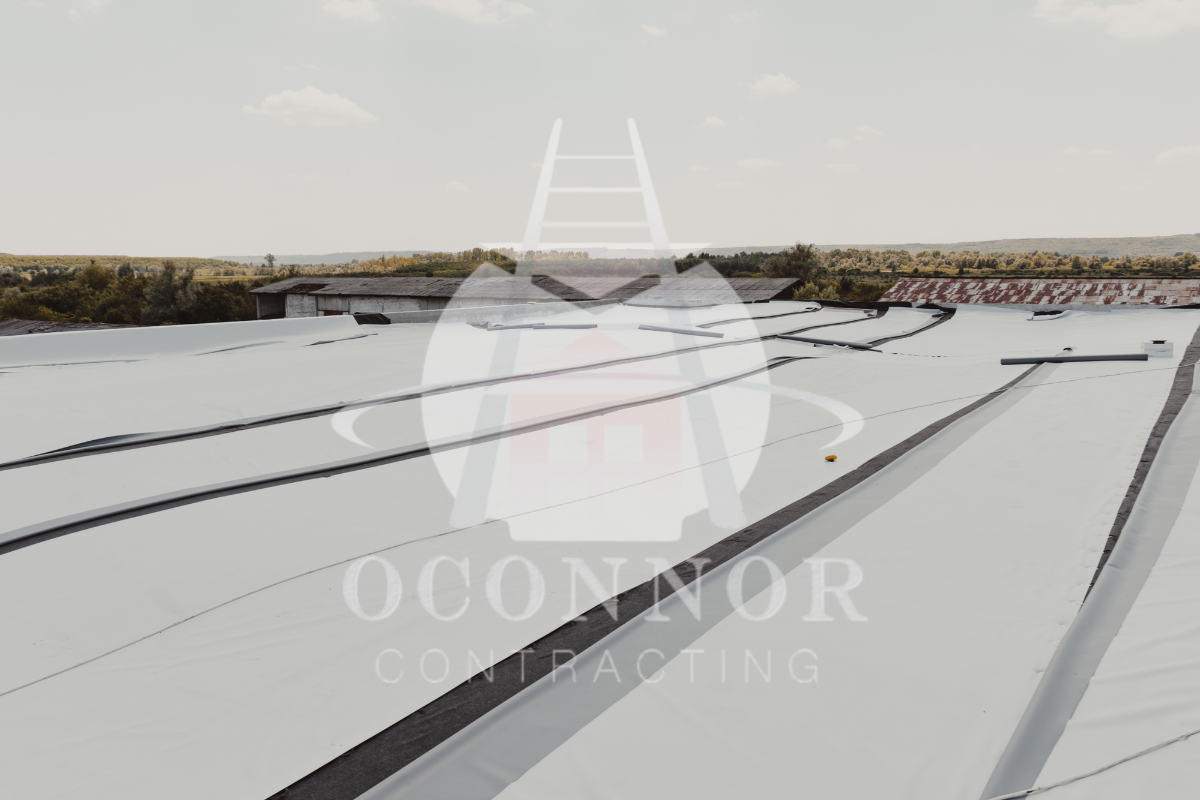
Trust Us To Install The Best Roofing Materials On Your Home
We hope that this list has given you a holistic view of all the popular roofing materials available on the market. All the materials on the list may be a good fit for your home, but if you are still unsure about which material to choose, we can help.
At OConnor Contracting, we offer the best residential roofing services in the area. We have been installing roofs in Buffalo, NY, and the surrounding region for years and can help you find the best roofing material that matches your preference and budget. Contact us today at (716) 600-7663 to learn more.

